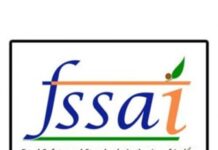Today’s Menu
The sugar futures market in NY closed out Friday with October/2021 at 19.14 cents per pound, 35 points higher than last week’s closing, almost the same development presented by the March/2022, which closed out at 32 points high. However, the other months, especially the maturities beyond October/2022, closed out the week with losses of up to four dollars per ton.
The ascending curve of the future interest rates in Brazil reaches the values of the Brazilian currency against the dollar offered by the financial market via NDF (Non-Deliverable Forward), a cash-settled forward contract. More real offered for each traded dollar along the curve causes pressure on the sugar hedge in cents per pound over the same period. The future quotations of the real are offered building in premiums that come to 7% per year for a 180-day period, 7.7% per year for 360 days and up to 9% per year for 720 days. A considerable part of the inverted curve of the sugar in NY is explained by this distortion between the domestic interest rates (and their upward expectation) and the foreign interest rates.
That doesn’t mean that the sugar market wouldn’t be inverted, but it means that the inversion would be less overwhelming. If it weren’t for the distortion between the interest rates, the average quotation from May/2022 to March/2023 and the next period would be at least 150 and 300 point above today’s levels, respectively.
The one-million dollar question is to know what the dollar spot will be like when the expirations of these structures (NDF) mature. That’s why we believe there is a small chance of a sugar hedge for export in real per ton for the next two crops combined with the simultaneous purchase of an out-of-the money call option, with an exercise price 150/200 points above the market, to go wrong.
The arithmetic average of the sugar values in NY in the futures contracts from May/2022 to March/2023 converted into real per ton, based on Friday’s quotations, was R$2,407. If we look at the daily quotations of the spot sugar since early 2000 converted into real per ton at the exchange rate of the day released by the Central Bank and adjust it for inflation, we conclude that – in less than 20 years of data collected daily – in just 6% of the events has the market traded above R$2,407 per ton. Your success level in a structure like that is greater than two standard deviations.
Note that the funds liquidated 22,000 contracts over the week and now they are long by “only” 209,500 contracts. The profit-taking caused a drop (over the period running from Tuesday to Tuesday) of 52 points, that is, for every 423 contracts sold by the funds the market moved 1 point downward. If they wanted to zero the balance they have, does that mean the market could drop 500 points? It’s not quite like that.
But, just in case, there are traders seriously thinking about buying out-of-the-money put options at the exercise price about 15-16 cents per pound for next year. One can make money on any market when hedged for tail events so many times mentioned here. Today nobody believes that the market can go to 15 cents per pound. But things happen right when nobody believes they will. It’s worth thinking about the subject.
In twelve accumulated months the energy commodities are the ones that have gone up the most over the period: natural gas reached 148%, gas went up 78%, and oil gained 75%. The agricultural commodities also performed pretty well, led by coffee which went up 58% and sugar 50%. When will the funds pocket all this money by settling their long positions on these markets? Might we be on the verge of profit-taking?
On the other hand, the concern of 9 out of 10 economists is that 2022 will be a very bad year for the Brazilian economy: galloping inflation, reduction in the GPD growth to dismal levels, insoluble fiscal crisis, water crisis, energy crisis, political crisis, sharp unemployment, consumption decrease, and – to make things worse – an election year. Who knows what tools the government will make use of so the occupant of the Planalto Palace stays in office for another four years?
Ethanol broke the record of the highest nominal prices last week. Hydrous was traded at R$4.0000 per liter, equivalent to sugar at 18.65 cents per pound.
India speeds up its sugar export sales and for the first time it has closed export contracts of at a fixed price before starting to crush the sugarcane of the 2021/2022 crop, which starts now in October. India’s frontloading can – depending on how the 2022/2023 crop in the Center-South (which starts in April/2022) will behave – bring more volatility to the NY quotations.
The Indian moment is auspicious in a perfect combination of extremely favorable events: the proposal for an increase in the minimum sugar price on the domestic market, the increase of the minimum sugarcane price for the producer, the decrease in the export subsidy and a strategic direction of more sugarcane for the production of ethanol decreasing that country’s spending on the import of fuel. These combined elements, as we have already said here before, can turn India, in less than a decade, into a residual exporter of sugar with all the focus on an increasing domestic per capita consumption and a greater concern over renewable fuel.
Risk management will play a fundamental role in the multifaceted scenarios we will face in the next years. Analyzing scenarios, pondering the possibilities, mitigating risk and adding value for the shareholders will more than ever be on the daily menu.
You all have a great weekend.
Click here to read Episode 1
Click here to read Episode 2
Click here to read Episode 3
Click here to read Episode 4
Click here to read Episode 5
Click here to read Episode 6
Click here to read Episode 7
Click here to read Episode 8
Click here to read Episode 9
Click here to read Episode 10
Click here to read Episode 11
Click here to read Episode 12
Click here to read Episode 13
Click here to read Episode 14
Click here to read Episode 15
Click here to read Episode 16
Mr. Arnaldo Luiz Correa is the Director at Archer Consulting. He is a Risk Manager with an experience of almost 30 years in the agriculture commodities market.
To get in touch with Mr. Arnaldo, write on arnaldo@archerconsulting.com.br












